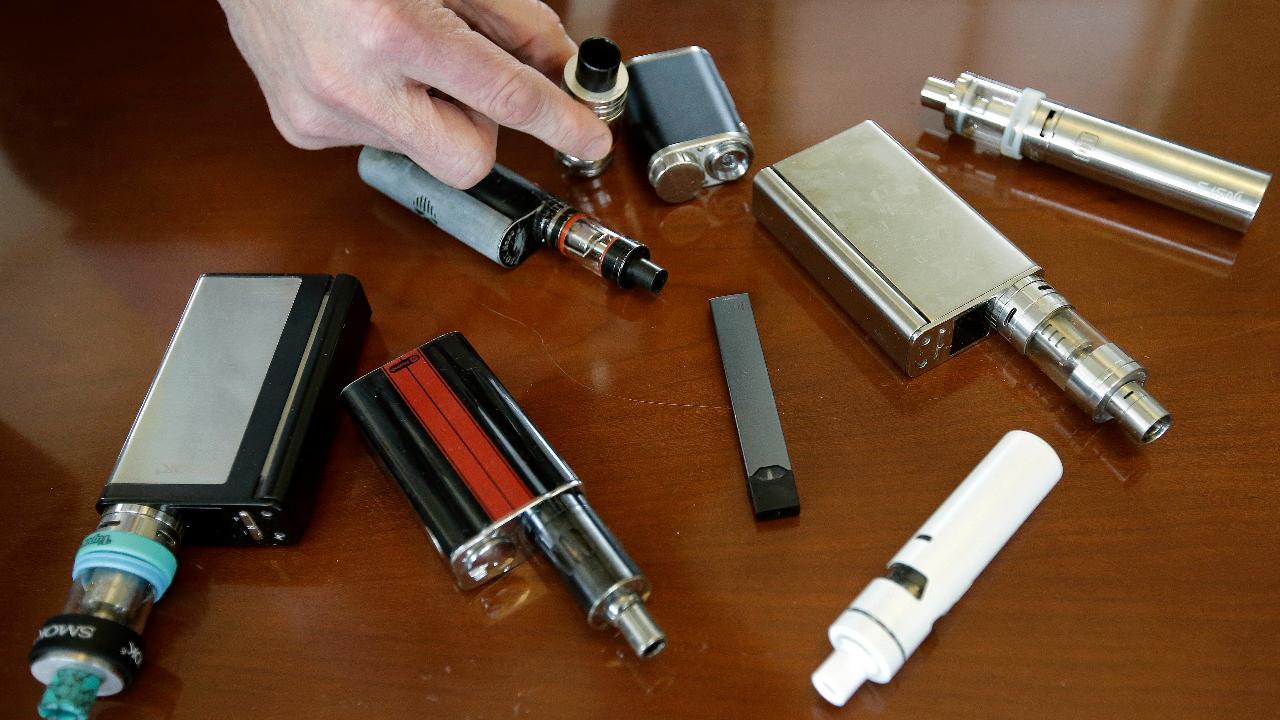After Gottlieb, FDA must stop dragging feet on less risky alternatives to cigarettes
For outgoing Food and Drug Administration (FDA) Commissioner Scott Gottlieb’s replacement, President Trump should nominate a commissioner who will work quickly to help smokers switch to less harmful tobacco products.
For the past 10 years, the FDA has failed to act promptly to consider and approve harm-reduction products -- such as snus and snuff, heat-not-burn devices and e-cigarettes-- that could protect the public health by reducing the number of adults who smoke cigarettes. Unless the agency fulfills its obligations under the law to regulate and promote these products, fewer Americans will stop smoking tobacco.
The FDA is stifling many of the innovative, harm-reduction products that have come under the agency’s regulatory control since the enactment of the 2009 Family Smoking Prevention and Tobacco Control Act. It has ignored statutory and self-prescribed deadlines for issuing guidance or marketing orders.
When Congress passed the law, it recognized that there were and would be better alternatives to smoking cigarettes and called for regulating products sold as harm reduction. To fund the law’s operations, tobacco companies have paid more than $4.7 billion in user fees since 2009.
Since then, the FDA has done little to make consumers sufficiently familiar with tobacco harm-reduction products. Repeatedly, the FDA has fallen woefully behind schedule on issuing guidance or regulations regarding these products.
Americans generally do not know that smokeless products, such as snus, eliminate 98 percent of the risks associated with smoking, such as cancer and heart disease. This product helps Sweden to have the lowest smoking rate in Europe. In England, 1,000 smokers quit every day because its public health agency is encouraging the use of vaping and the nation has Europe’s second lowest smoking rate.
While 35 modified risk applications have been submitted to the FDA since 2011, only four are under current scientific review. For example, Philip Morris International submitted a modified risk and a Premarket Tobacco Application for IQOS, its innovative heat-not-burn technology, in December 2016 and March 2017. The FDA’s Tobacco Product Scientific Advisory Committee overwhelming agreed with the company’s label stating that, “Scientific studies have shown that switching completely from cigarettes to the IQOS system significantly reduces your body’s exposure to harmful or potentially harmful chemicals.”
| Ticker | Security | Last | Change | Change % |
|---|---|---|---|---|
| PM | PHILIP MORRIS INTERNATIONAL INC. | 181.81 | -0.88 | -0.48% |
| MO | ALTRIA GROUP INC. | 64.40 | -1.00 | -1.53% |
If the FDA was following its own guidelines, there should have been a decision on the modified risk application by December 2017. If the agency was following the law on the premarket application, a decision should have been acted on “as promptly as possible, but in no event later than 180 days after receipt of an application.” Instead, both are held up in a backlog at the FDA while citizens in more than 40 countries, including Canada, have access to this less harmful product.
Two other companies, R.J. Reynolds and U.S. Smokeless Tobacco, submitted modified risk applications for their snus and snuff products in April 2017 and March 2018 respectively. In both instances, the advisory committee agreed that their products would reduce risk from lung cancer and other smoker-induced diseases. Unfortunately, there has been no final action on the products.
It is increasingly apparent that the FDA does not want the public to be educated on the fact that there are better and far-less risky alternatives to smoking cigarettes. Sadly, even Commissioner Gottlieb conflated adult-harm reduction with legitimate and necessary efforts to reduce teenage vaping. Instead of banning certain vaping flavors, the FDA should focus on educating parents and teachers on how to stop their children from picking up this addictive habit.
CLICK HERE TO GET THE FOX BUSINESS APP
If the agency continues along its current path, more people than necessary will die from smoking, rather than shifting the trajectory downward as the agency promised in July 2017. Commissioner Gottlieb’s successor should stop the regulatory slow-walking and allow these products to be marketed as helping to save lives.
Elizabeth Wright serves as the director of Health and Science Policy at Citizens Against Government Waste.




















